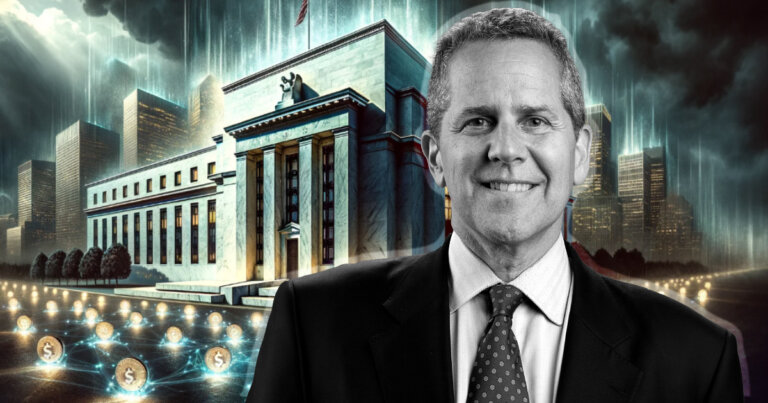 Federal Reserve’s Michael Barr comments on stablecoin regulations, CBDCs
Federal Reserve’s Michael Barr comments on stablecoin regulations, CBDCs Federal Reserve’s Michael Barr comments on stablecoin regulations, CBDCs
Barr suggested that Congress, not the Fed, should make rules for stablecoins.

Cover art/illustration via CryptoSlate. Image includes combined content which may include AI-generated content.
Michael Barr, vice chair for supervision at the U.S. Federal Reserve, commented on matters related to stablecoins and CBDCs on Nov. 7.
According to reports from Bloomberg, Barr said:
“There is interest in strong, federal regulation of stablecoins that makes sure the Federal Reserve can approve, regulate and enforce against stablecoin issuers, including wallets.”
Barr said that the U.S. needs a “strong framework” for stablecoins but implied that it is not the Federal Reserve’s job to make those rules. Rather, he said that it is “better if Congress can decide the rules of the road.” Reports from August, however, suggest that Republican lawmakers are opposed to certain stablecoin rules proposed by the Fed.
Other reports from Fortune indicate that Barr commented directly on central bank digital currencies (CBDCs), or dollar-pegged digital assets issued by the government.
Barr said that the Federal Reserve has not yet decided whether issuing such a CBDC would be a good idea or not — in line with his earlier statements.
That statement also agrees with the Federal Reserve’s official FAQ page, which says that it has not yet made any decision on whether to a CBDC. It also confirms that Congressional approval would be necessary to issue such an asset.
Barr took on Fed role in early 2022
Barr took on his current role after the Biden administration announced his nomination in April 2022. He has previously commented on other matters related to cryptocurrency.
In March 2023, the Federal Reserve said that Barr would lead a review of its own oversight of the failed crypto-friendly bank, Silicon Valley Bank. Later, Barr suggested that the bank’s failure was due to partly contagion within the American banking system while also discussing the Federal Reserve’s own role in predicting bank failures.
In October 2022, Barr advised banks working with crypto deposits to be aware of increased liquidity risks and told banks to be cautious when serving crypto firms.








































































































